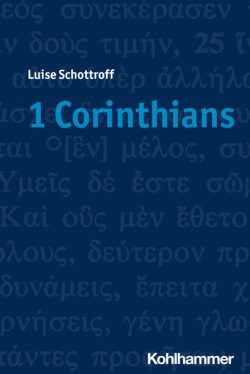Читать книгу 1 Corinthians - Luise Schottroff - Страница 34
На сайте Литреса книга снята с продажи.
The »We« of the Congregation
ОглавлениеIn his letters, Paul frequently changes from the second person plural, which corresponds to the form of a letter to a congregation, to a »we.« That is also true of 1 Cor 2:6.140 God is the Father of this »we« and the Messiah its Liberator (1:3, 8, 9, 10). This »we« say the Shema Israel (8:6; cf. Deut 6:4) and thereby set limits for the powers (8:6). The »we« are people who receive power and wisdom from God (1:18, 30). They are the ones who love God (2:9) and are saved by God (1:18). They receive God’s revelation (2:10, 12) and pass it on (2:6, 13; cf. 1:5). They are gifted with divine understanding (2:16).
In Chapter 10 Paul relates the »we« of his time and place to Israel in the wilderness. The »we« learn from »our fathers and mothers« who went out of Egypt (10:1). This »We« of the present are the sōma Christou (10:16; 12:27). Paul includes himself in this »we« (for example, 2:6). In 10:11; 1:18; 2:6, he defines the »we« eschatologically. He speaks of »us who are being saved«/sōdzomenoi (1:18). The verdict at God’s judgment, about which no one can know anything, is for them a hope and source of strength (1:18). They are experiencing already now the beginning of the end of the power and might of the »aeons« of this world (10:11; on this see the basic information on Concepts of Time and Eschatology at 1:7 above). Therefore the »we« of the congregation has become identical with God’s Messiah and, as the body of Christ, it is the authority for deciding the legitimacy of all God’s ambassadors (3:17, 22, 23). Statements like these show that, in the present and in the everyday world and its power structures, the body of Christ/the sōma Christou is the Messiah. The emphatic language about the »we« in 2:6–16 or 3:17, 22, 23 does not exclude the fact that Paul also sharply criticizes the congregation.
